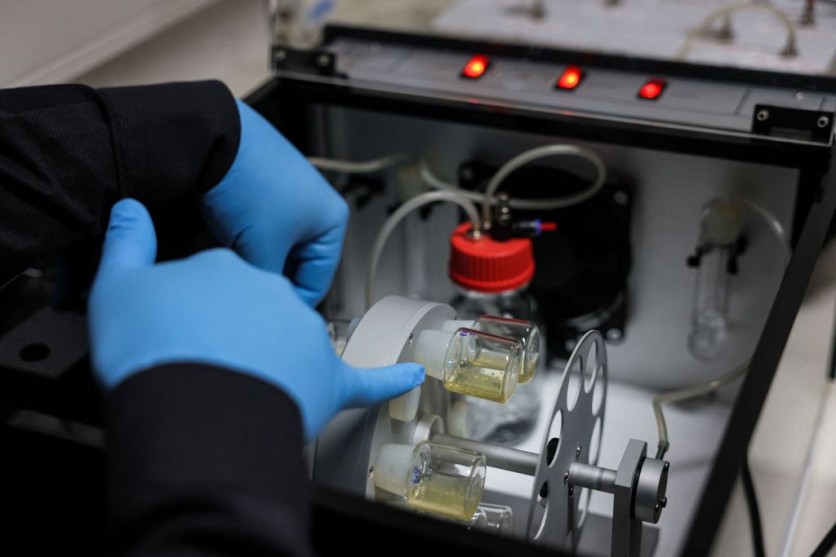In science fiction cinema, few films have delved as deeply into the ethical and philosophical implications of genetic engineering as "Gattaca."
Released in 1997 and directed by Andrew Niccol, the movie presents a dystopian future where society is divided between "valids" - individuals conceived through genetic manipulation - and "in-valids," those born through natural means.
Set against this backdrop, "Gattaca" weaves a thought-provoking narrative that challenges viewers to ponder the limits of human potential and the ethical dilemmas of genetic engineering.The film's protagonist, Vincent Freeman (Ethan Hawke), is an invalid who aspires to become an astronaut.
However, he faces systemic discrimination due to his genetic makeup, which is considered inferior in a world obsessed with genetic perfection. Vincent's dreams drive him to assume the identity of Jerome Eugene Morrow (Jude Law), a "valid" paralyzed in an accident.
With the help of Jerome's genetic material and rigorous subterfuge, Vincent infiltrates the Gattaca Aerospace Corporation to realize his ambitions. At the heart of "Gattaca" lies a fundamental exploration of the human spirit's resilience and potential to transcend perceived limitations.
Vincent's journey showcases the tenacity of the human will, emphasizing that one's genetic makeup does not solely determine their abilities. The film underscores the danger of underestimating individuals based on superficial criteria, serving as a poignant reminder that human potential is immeasurable and multifaceted.

What Is Genetic Engineering?
Genetic engineering, also known as genetic modification or genetic manipulation, is a scientific process that involves altering the genetic material of an organism's DNA in a controlled manner.
This process allows scientists to insert, delete, or modify specific genes within an organism's genome. Genetic engineering has a wide range of applications, from basic research to developing new medical treatments, agricultural improvements, and industrial processes.
The main techniques in Genetic Engineering include:
1. Gene Insertion: a foreign gene is inserted into an organism's DNA to either add a new trait or replace a malfunctioning gene. It can be done using various methods, including viral vectors, plasmid DNA, or gene-editing technologies like CRISPR-Cas9.
2. Gene Deletion: Specific genes can be removed from an organism's genome to study their functions or to prevent the expression of undesirable traits.
3. Gene Editing: Technologies like CRISPR-Cas9 allow scientists to make precise changes to DNA by cutting and editing specific DNA sequences. It can enable the correction of genetic mutations or the modification of specific traits.
4. Gene Silencing: It involves reducing or inhibiting the expression of certain genes. It's often used to study gene functions or to develop therapies for diseases caused by overactive genes.
How Advanced Is Today's Science?
In its heart, "Gattaca" tackles the human desire to engineer human DNA to eliminate imperfections and disease. Some current research has made headway into genome editing to deal with diseases in human eyes, both genetic and non-genetic.
A team of researchers led by Feng Zhang at the McGovern Institute for Brain Research at MIT and the Broad Institute of MIT and Harvard has uncovered the first programmable RNA-guided system in eukaryotes - organisms that include fungi, plants, and animals.
The team describes how the system is based on a protein called Fanzor. They showed that Fanzor proteins use RNA as a guide to target DNA precisely and that Fanzors can be reprogrammed to edit the genome of human cells.
Some research has even advanced in gene-edited food. It involves adding genes to a plant's DNA from a different plant or animal species. It creates new varieties which could not have been produced through cross-breeding. The genetic technology in the film seems ideal but still poses many ethical and social problems.
What 'Gattaca' Can Teach Us
Beyond its narrative, "Gattaca" serves as a cautionary tale about the uncharted terrain of genetic engineering. The film presents a world where genetic manipulation has become commonplace, allowing parents to design their children's traits with a precision that goes beyond health considerations.
This futuristic depiction raises pertinent ethical questions about the potential consequences of altering the genetic makeup of future generations. It prompts viewers to contemplate the slippery slope that such practices might lead to, where societal divisions deepen based on genetic enhancements and unaltered traits.
The film also addresses the notion of genetic determinism - the belief that genes are the sole arbiters of an individual's destiny. In "Gattaca," this concept is dismantled as Vincent overcomes his genetic disadvantages through sheer determination and hard work.
This perspective resonates with ongoing debates in the real world about the extent to which genetics influence human behavior and achievements.
The film prompts us to consider the interplay between genetics and environment, highlighting that while genes play a role, they do not ultimately sway over one's fate.
"Gattaca" further underscores the price of achieving societal ideals through technological advancements. The character of Jerome, who provides Vincent with his genetic material, symbolizes the pitfalls of pursuing perfection at any cost.
Jerome's tragic arc emphasizes the psychological toll of living a lie and the emotional repercussions of adhering to an unrealistic standard. This narrative thread speaks to the societal pressures to conform and the need to appreciate individuality and diversity.
In retrospect, "Gattaca" remains a relevant and compelling piece of cinematic storytelling. As scientific advancements in genetic engineering progress, the film's themes resonate with increasing urgency.
It encourages audiences to contemplate the ethical ramifications of manipulating the very essence of human identity. Also, it challenges us to engage in meaningful discussions about the boundaries of science and morality.
Related Article : Researchers Genetically Engineer Bacteria to Eliminate Tumors

ⓒ 2025 TECHTIMES.com All rights reserved. Do not reproduce without permission.




